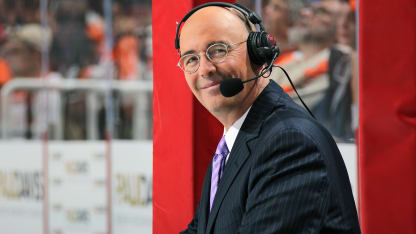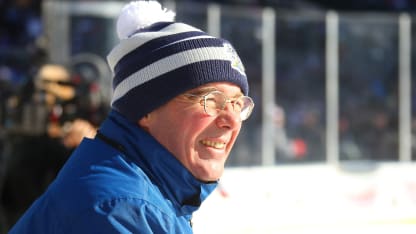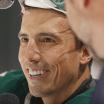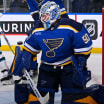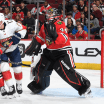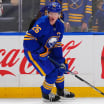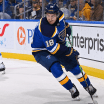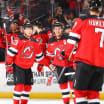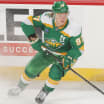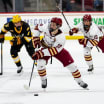"We've had a family doctor, Dr. Michael Cohen, for almost 30 years, and usually he sends out these unbelievably eloquent reports after your physical just saying how great it was and how healthy you are, this and that," McGuire told NHL.com in a phone interview Thursday. "Everything was good in mine except he said he's a little concerned about my elevated PSA [prostate-specific antigen], so he wanted me to go have a second test because sometimes there are false positives."
The second test revealed the same elevated PSA, so Cohen sent McGuire to see Dr. James McKiernan, a urologist at Columbia Presbyterian. An MRI revealed a small lesion on McGuire's prostate.
"So they said, 'We think because there's this lesion you should have a biopsy,'" McGuire said. "I went and had a biopsy at Columbia Presbyterian. That's probably the most difficult part of the procedure. Within four days they called me up and said your prostate has cancer."
McGuire was lucky that the cancer was caught early, in stage 1.
"I'm telling you right now, if I hadn't had this physical and Dr. Cohen hadn't have caught this early with Dr. McKiernan, I would still be running around with my hair on fire and I would have never known I had anything wrong with me," McGuire said. "I would never know. My workouts were the same. My work hours were the same. The amount that I was watching games, there was no issue. I was traveling to Boston to watch my son play [prep school] hockey. I was watching my daughter row all over the country. I was at the Army-Navy [football] game. I would have never, ever known. I didn't feel anything. I felt normal."
After meeting with McKiernan, McGuire said he called members of the NBC hockey family who have had prostate cancer, including his broadcast partner, Mike "Doc" Emrick. He eventually was pushed in the direction of Dr. Ash Tewari at Mount Sinai.
